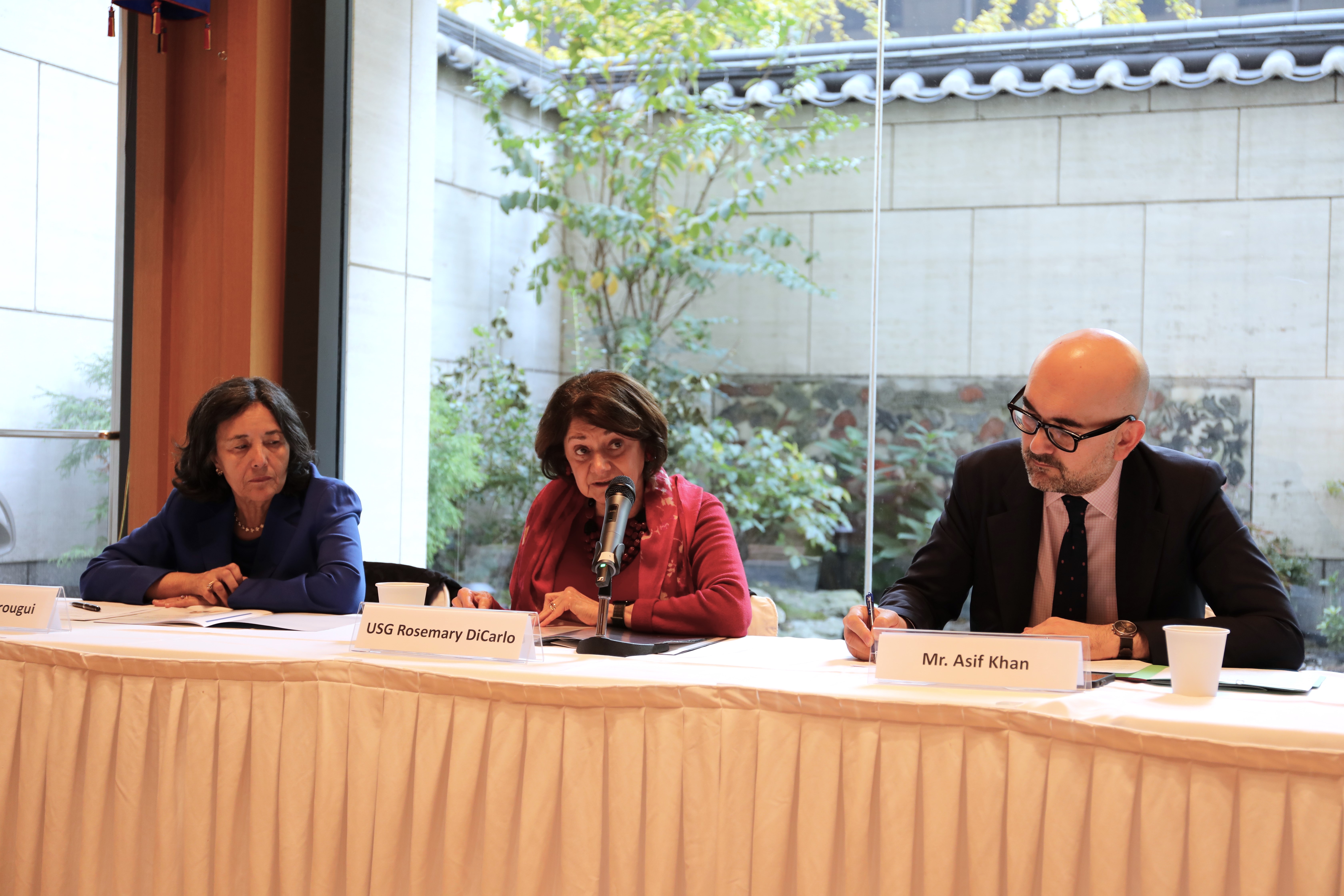Legacies of serious past crimes can be extremely difficult to address during peace processes. The Mediation Support Unit (MSU) supports UN mediators and their teams, parties to conflict, and partner organizations who are confronting questions of justice and reconciliation in such contexts.
“The potential of transitional justice, as a strategic policy tool to help build just and inclusive futures in fractured societies that are grappling with legacies of conflict and/or large-scale human rights violations and abuses, is often underutilized…”– Guidance Note of the Secretary-General on Transitional Justice: a Strategic Tool for People, Prevention and Peace
Lessons learned and guidance development
Practice Note: Enhancing the quality and effectiveness of mediation efforts through human rights
In October 2023, DPPA and OHCHR published a joint practice note entitled Enhancing the Quality and Effectiveness of Mediation Efforts Through Human Rights. The note provides practical strategies and real-world examples to help mediators weave human rights principles and considerations into their work to open space for political negotiations, strengthen on-going processes, and reinvigorate stalled efforts. It shows that a human rights-based approach offers practical solutions to many of the challenging issues that arise in good offices, mediation and preventive diplomacy efforts.

Operational Support
Working closely with OHCHR and other UN entities, MSU offers practical support and options based on technical advice and comparative experience to promote accountability and the realization of victims’ rights, with a focus on the design of peace talks in relation to these issues. It also suggests approaches for a society to move towards reconciliation, rooted in the realities of each context. To this end, MSU has staff and Standby Team capacities that can be quickly deployed to support a variety of peace negotiation contexts.
For example, in Bolivia, following a contested electoral process and the resulting political instability, a Standby Team process design expert assisted the UN Resident Coordinator in developing UN support to a programme of national reconciliation efforts. This involved supporting analysis, facilitating relationship-building with high-ranking government officials, and preparing activities such as a virtual experience-sharing forum to distil lessons from regional reconciliation processes as well as a digital dialogue initiative to consult Bolivians on issues of identity, citizenship and national unity.
Guidance Note of the Secretary-General on Transitional Justice
Between 2021 and 2023, MSU also contributed to the process of updating the Guidance Note of the Secretary-General on Transitional Justice, published in October 2023. As inputs to this effort MSU experts contributed two papers:
- “A Field of Dilemmas: Managing Transitional Justice in Peace Processes” by Barney Afako. This paper highlights that peace processes are an important, albeit atypical, arena for policymaking, generally and in relation to transitional justice. This paper examines how the concept of transitional justice is understood, misunderstood, introduced, contested and managed within peace processes. It underscores that, in peace processes, there is a need to maintain an approach to transitional justice that is decidedly Janus-faced: looking at the past to acknowledge and honour victims and to confront difficult histories, while looking to the future to transcend the past and to achieve a transformative transition from conflict. Through this lens, the paper reflects on the approach and practice of the United Nations and other regional, national, local and international actors that support and accompany peace processes. (Note: This paper reflects the views of the author and does not necessarily reflect the views of the United Nations.)
- “Transitional Justice in Peace Processes: United Nations policy and challenges in practice” by Priscilla Hayner. The subject of justice and accountability raises significant challenges in peace mediation contexts, as well as in the implementation phase following a peace agreement. These challenges usually cannot be avoided and simply must be worked through. However, there are steps that the United Nations can take so that its staff and representatives are in a stronger position to plan, to respond to the substantive questions that arise and to better coordinate with each other. This paper sets out some of these challenges, and offers both policy and strategy ideas for addressing them. (Note: This paper reflects the views of the author and does not necessarily reflect the views of the United Nations.)
Resources
Over the past twenty years the UN has issued numerous guidance documents and briefing notes that should help those addressing these challenging issues; publicly-available UN documents are provided below, in chronological order.
